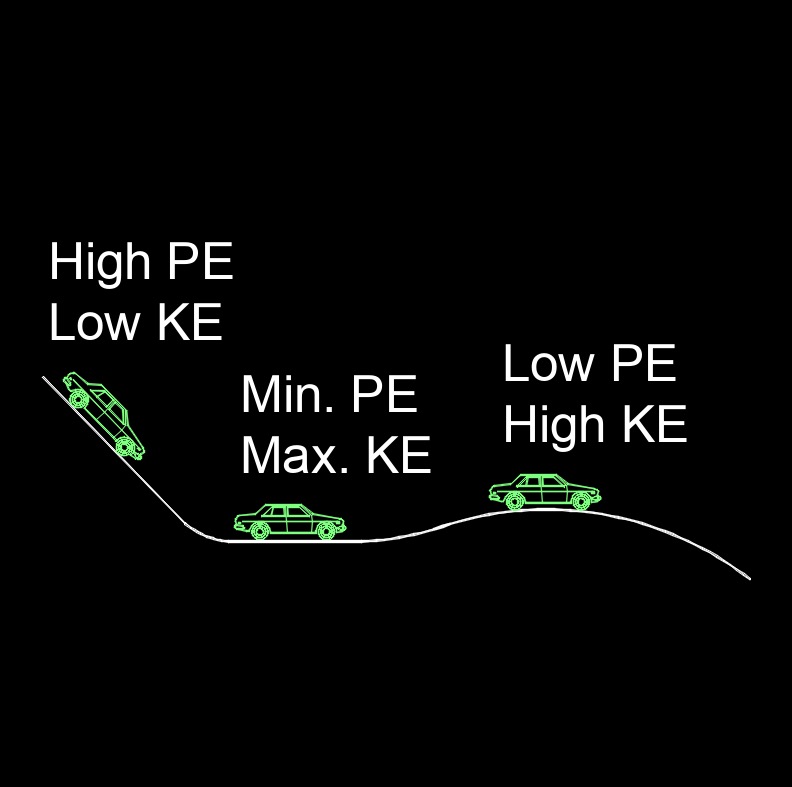Mechanical Energy
Mechanical Energy Formula |
||
|
\( ME \;=\; PE + KE \) (Mechanical Energy) \( PE \;=\; ME - KE \) \( KE \;=\; ME - PE \) |
||
| Symbol | English | Metric |
| \( ME \) = Mechanical Energy | \( lbf-ft \) | \(J\) |
| \( PE \) = Potential Energy | \( lbf-ft \) | \(J\) |
| \( KE \) = Kinetic Energy | \( lbf-ft \) | \(J\) |

Mechanical energy, abbreviated as ME, is the sum of the change in kinetic energy and potential energy generating from the force of gravity, external forces or the movement released in machine movement. It's a fundamental concept in physics that helps describe the behavior of objects in motion and the interplay between their motion and position.
The law of conservation of mechanical energy states that in the absence of non-conservative forces like friction or air resistance, the total mechanical energy of a closed system remains constant. In other words, the mechanical energy is conserved and can be transferred between kinetic and potential forms, but the total amount remains unchanged.
Mechanical energy is a crucial concept in understanding the behavior of objects in various situations, such as falling objects, pendulum swings, and rolling motion. It provides insights into the transformations between different forms of energy and the relationship between an object's motion and its position.

